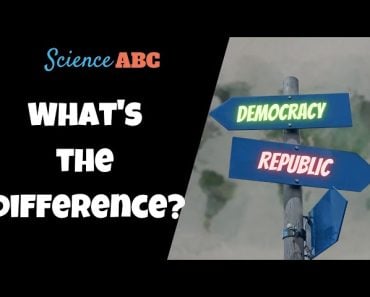Table of Contents (click to expand)
The challenge of defining gig workers is based in the diversity of tasks that they undertake. Crafting policies to safeguard their rights is a tightrope walk, balancing flexibility and protection. However, this discussion regards the complexities shaping the future of work as we know it!
The gig economy is composed of freelancers, self-employed workers and informal sector workers. A gig worker is an independent contractor hired for specific tasks or projects. The relationship exhibited during the contract duration varies vastly from a standard employer-employee relationship. Since it is primarily task-centric, the focus is on delivering outputs with minimal to no supervision.
A gig worker performs various tasks, spanning from low to highly skilled. This makes it difficult to differentiate a standard employment contract from a freelancer contract, as tasks assigned to either worker category can be similar. Therefore, in terms of outputs delivered, there is no clear way to distinguish between the two worker categories.
Any policy intervention would require measurement as the first step to compute its prevalence before making projections on the impact. Impact measurement of any policy for the gig economy would not be limited to measuring the impact of the incomes of gig workers on a country’s national income, but also understanding the required benefits or protection that must be granted to gig workers.
Due to the lack of a standard definition, there are a variety of estimates on the size of the gig workforce. Surveys often adopt varying definitions for measurement. This results in divergent estimates and a variety of conclusions that are often not comparable. This article seeks to understand the implication of this inability to define a gig worker and the lack of comprehensive policy intervention for securing their essential worker benefits.
Recommended Video for you:
Why Is It Difficult To Define A Gig Worker?
Measurement presupposes a definition of a gig worker; this has remained the most cumbersome task, due to the wide range in the nature of work exhibited. The lack of a definition stems from the fact that any survey seeking to measure the gig economy confronts a variety of non-standard arrangements, divergent worker expectations, tax status and nature of work.

Jobs in any economy can be categorized into two sectors—organized (formal) and unorganized (informal). Organized sector jobs come with a defined contract, along with social security benefits. Jobs in the gig economy may come with a defined contract in some instances, but no social security benefits.
In the case of many jobs, there is no contract, categorizing all these workers as part of the informal sector. Contract or not, gig workers remain vulnerable due to the absence of social security provision.
Digital transformation has only made these arrangements more pervasive. Gig work arrangements can now be mediated via platform and non-platform arrangements. For instance, a cab driver could have partnered with Uber, which would be platform-based, or he could be paid based on a contract via a cab company (non-platform).
Many of these categories may also overlap, and in some instances, one individual could be involved in multiple arrangements at any given time. For example, they could be platform workers offering ride share services at night and be working as graphic designers during the day.
While gig work does offer flexibility, some workers opt for such work arrangements to supplement their primary source of income, and some resolve to do it due to a lack of alternate employment opportunities. For some, it’s merely an additional income, while for others, it could be their primary source of financial stability. Since the combinations are plenty and expectations vary, it is challenging for any survey to capture the extent and expectations of a gig worker.
Why Is It Challenging To Draft A Comprehensive Policy For Gig Workers?
Due to the diversity in the nature of work exhibited (skilled to non-skilled), fluidity in worker classification (contractor vs employee) and divergent worker expectations, it is increasingly difficult to choose any consistent policy, as the measurement itself has resulted in divergent estimates.

This inability makes gig workers vulnerable, as their rights, entitlements, and protection must be clearly outlined. In some countries where laws on this issue already exist, some companies have lobbied for amendments to the existing labor laws to circumvent benefits by extending selective employee benefits, rather than arguing on the grounds of the flexibility provided to independent contractors, as opposed to employees.
Companies tend to employ independent contractors for the exact nature of work in order to save costs (social security, payroll taxes etc) on these provisions. This problem is pervasive not only in developing countries, but also in developed counterparts. Workers may prefer such arrangements, especially in highly skilled contracts, as they offer more flexibility, but in other instances, companies are merely cashing in on the employment crisis by saving costs.
Whether or not gig jobs “should” come with contracts, it is not always the case. Often, high-skilled work does come with contracts, but that may not hold true for low-skilled work.
The labor laws of any country legislate provisions broadly for minimum wage, working hours and overtime, workplace facilities, discrimination and harassment provisions, leaves and benefits, unions, and dispute resolution mechanisms, just to name a few. Since all of these are legally provisioned, an employee is protected entirely from exploitation. A gig worker is not liable to receive these employee benefits, as they are contracted.

The policies drafted need to ensure basic worker protection in this space. Even if legislation is drafted on national scales to protect the basic rights of a gig worker, enforcement remains equally challenging, as gig work operates through a highly decentralized network. Traditional methods of labor contract enforcement may not be effective. These policies also need to consider the added costs, which will be pushed on to consumers if additional benefits are extended to gig workers.
While such a comprehensive policy has yet to be drafted, there are several countries that have taken a step in this direction, which must be applauded. No policy can be bereft of shortcomings, but passing a bill in this direction does recognize the dire need as our modern world and workforce continues to change.












